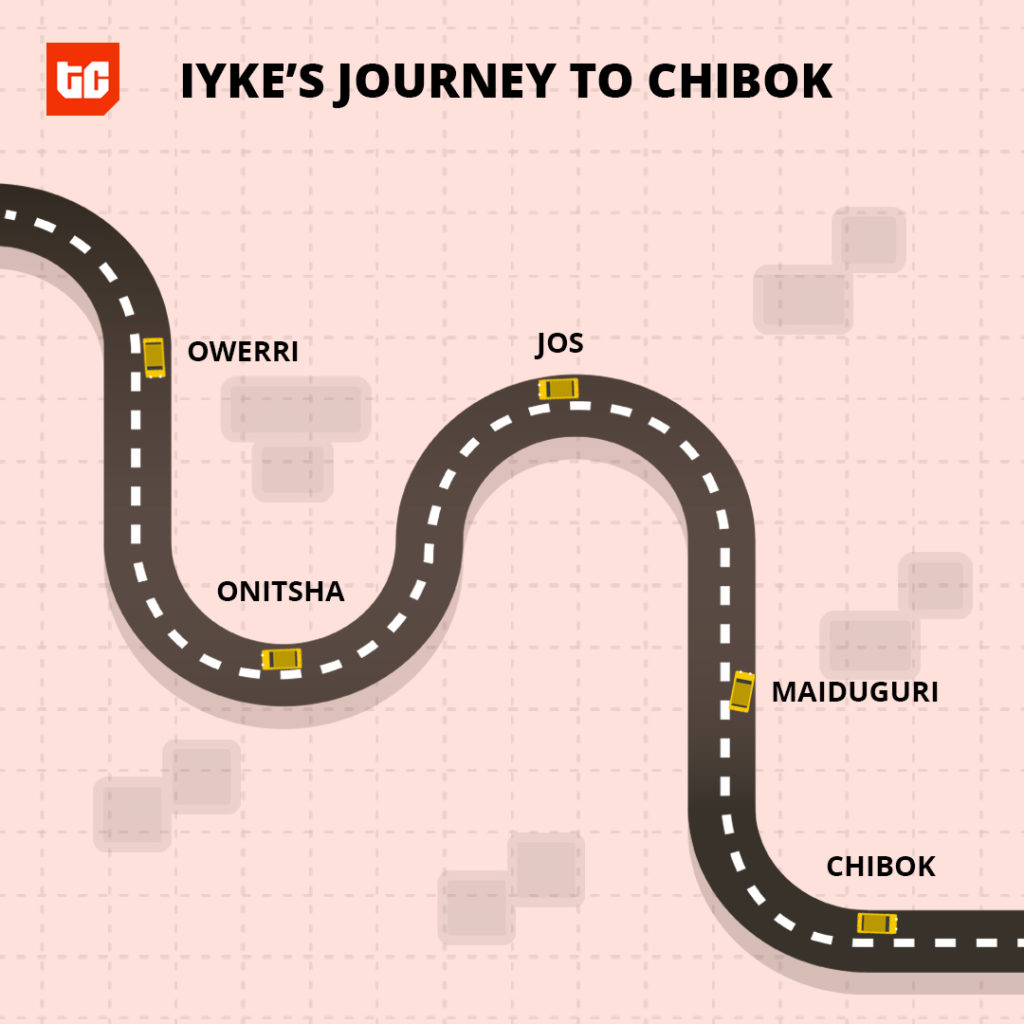On Thursday morning, the question on my mind was: “What is the most remote part of Nigeria you’ve ever been?”
Here’s evidence that I didn’t make that up:
Over the past few weeks, we’ve learned about Dakar, Ghana, Somaliland and Sierra Leone. But every time I talk to Nigerians, I often talk to Nigerians who live in Lagos or Abuja.
What is life and technology like in Nigeria’s more remote parts?
First, here are some of the answers I got on the most remote areas people have visited: Langtang, Okpe, Babura, Gwiwa and Chibok.
This week, we’re speaking to *Iyke, an engineer in Nigeria’s telecoms sector who has been to some parts of Nigeria most Nigerians have to Google.
He has also lived in Chibok, a town in Borno state infamous for the kidnap of over 300 schoolgirls.
Iyke tells me: “I am in telecoms and I move around when I am on the field, but I didn’t go to Chibok for work. I went to Chibok for my National Youth Service Corps (NYSC) in 2009.”
In 2009, Iyke remembers Chibok as being peaceful and accommodating, it also had GSM communication.
“There was GSM communication then, a 70-meter MTN mast was there to provide network. I later worked with a man who told me he supervised the construction site.”
Even though Iyke could make calls, he says internet access then was not what it is now. “Only a few people had internet enabled phones. Most people used the Nokia 3310 so whether there was internet access wasn’t much of an issue.”
But one issue was getting to Chibok. Every week, we talk about airports, and last week, we had a ranking of five airports from Tami. There are no airports in today’s Digital Nomad, Iyke got to Borno by road.
“I travelled from Owerri through Onitsha. Because there is no direct bus to Maiduguri in Owerri, we had to go to Onitsha.”
“We left Onitsha at around 12p noon and got to Jos by 12 midnight.”
That’s the first part of Iyke’s journey: 12 hours of travel. From Jos, he continued to Maiduguri at 4am and only arrived at 2pm.

From Maiduguri, Chibok town is another five hours. Are there ATMs, mobile money or banks in a town so difficult to reach?
Iyke’s response is sarcastic: “ATM in Chibok? The nearest place to get cash was the town of Damboa.”
Even though Chibok is close to Damboa, the bad roads mean that most people have to go to Maiduguri first to reach it. It turns a 2-hour trip into 14 hours.
“At the time, only one bus goes to Chibok from Maiduguri and it starts loading in the morning. If you miss the bus, you have to move your trip to another day or join a wagon moving goats or cows to Chibok.”
For a town with a population of over 65,000, there’s no doubt that mobile money services will make a world of difference. But at the time, Iyke had the community to thank for surviving when it was difficult to head to town to get money.
“Usually, the community contributes money and buys foodstuff for people undergoing their national service.”
It made all the difference in a town where children stop schooling during the farming season. Apart from Chibok, Iyke has traveled to villages in Kaduna and Nasarawa for work, supervising the construction of telecommunications masts.
“There was a village I went to and the villagers gathered as I was on the site. One of them told me that the only time vehicles come there is when people are coming to the site. There’s no such thing as cold water.”
But all that is in the past for Iyke now, as he no longer works on the field, but he misses travelling.
“These days, I just sit in my office and visit places via Google Earth and phone calls.”
*Not his real name
If you want to share your tech experience with TechCabal, send me an email: muyiwa@bigcabal.com




















